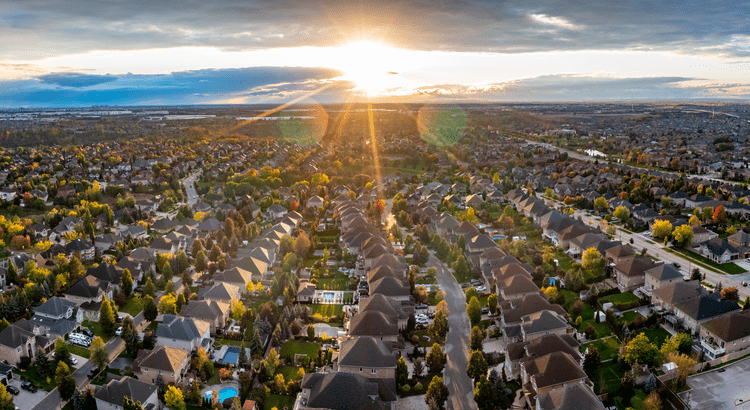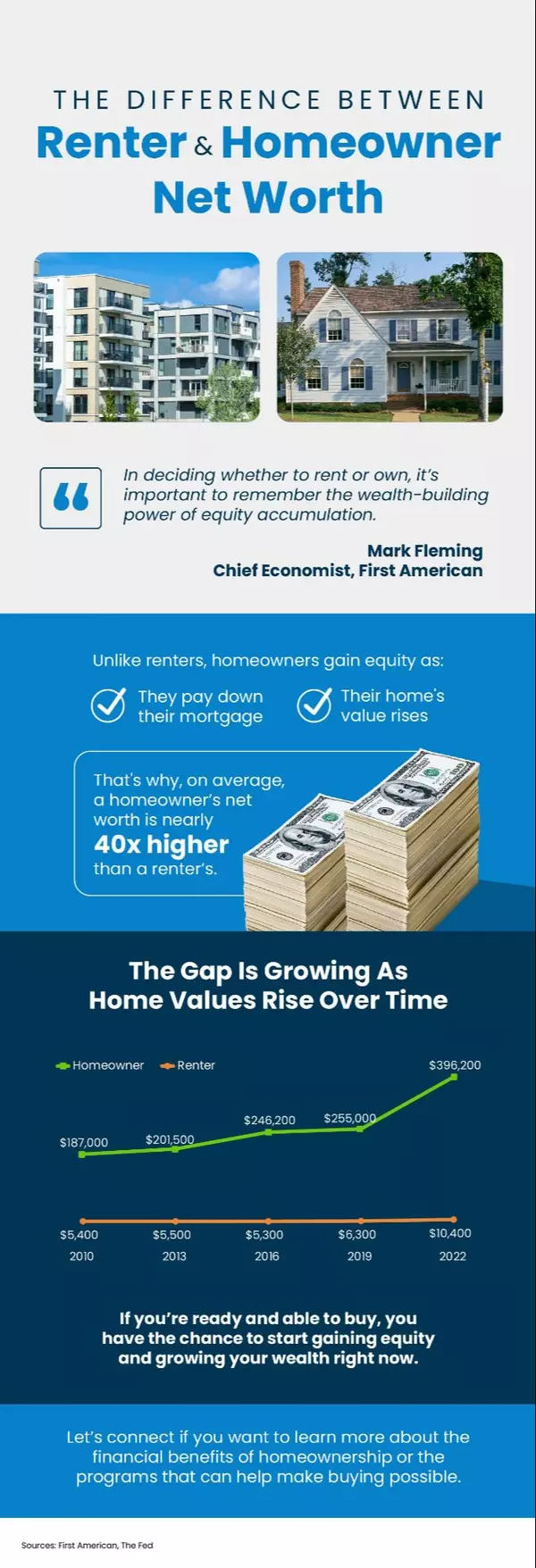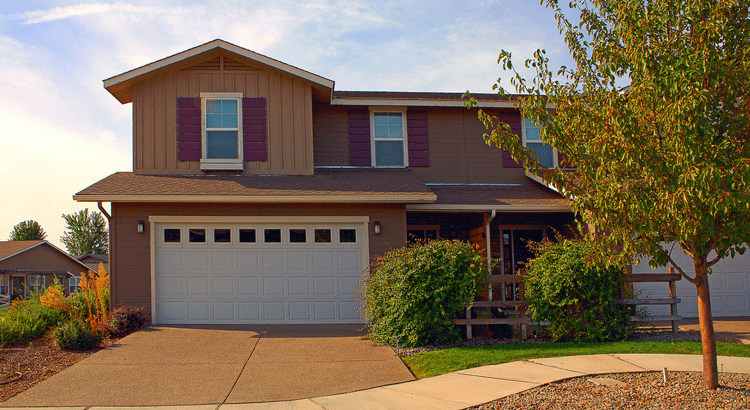
Why Today’s Foreclosure Numbers Won’t Trigger a Crash
Why Today’s Foreclosure Numbers Won’t Trigger a Crash With everything feeling more expensive these days, it’s natural to be concerned about how rising costs might affect the housing market. Many people worry that high prices and tighter budgets could lead more homeowners to fall behind on their mortgage payments, resulting in a wave of foreclosures. However, before you start worrying about a housing market crash, let’s take a closer look at what’s really happening. The good news is that the latest foreclosure data indicates there’s no wave on the horizon. How Today’s Market Is Different from 2008 Let’s alleviate those fears by examining the bigger picture. The graph below utilizes research from ATTOM, a property data provider, to illustrate that the number of homeowners initiating the foreclosure process is nowhere near the levels we saw following the 2008 crisis. During that time, there was a significant spike in foreclosures. Today, the number is much lower—and it has even decreased in the latest report. There’s a substantial difference between the current situation and what occurred when the housing market crashed (see graph below): In case you’re curious about why foreclosure filings have slightly increased since 2020 and 2021, here’s what you need to know. During those years, there was a moratorium (shown in white) aimed at helping millions of homeowners avoid foreclosure during difficult times. This is why the numbers from just a few years ago were so remarkably low. Looking further back, it’s evident that overall foreclosure filings have decreased significantly. Now, you might wonder how there are fewer foreclosures today, even with the rising cost of living. The answer lies in the fact that homeowners today have significantly more equity built up in their homes compared to 2008. As an article from Bankrate explains: “In the years after the housing crash, millions of foreclosures flooded the housing market, depressing prices. That’s not the case now. Most homeowners have a comfortable equity cushion in their homes.” This equity serves as a safety net, enabling many homeowners to steer clear of foreclosure even when facing financial difficulties. Even if someone is having trouble making their monthly payments, they may have the option to sell their home and avoid foreclosure altogether. This situation is drastically different from the conditions during the crash when homeowners owed more on their mortgages than their homes were worth. What’s Ahead for the Housing Market It’s true that today’s higher cost of living is a challenge for many individuals. However, this doesn’t indicate that we’re on the verge of a surge in foreclosures. The equity cushion homeowners possess is helping to maintain low foreclosure filings. Today’s homeowners have more options available to avoid foreclosure. Bottom Line Yes, everyday expenses for gas and food have risen, but that doesn’t mean the housing market is on the verge of another foreclosure crisis. Data indicates that the market is far from facing a wave of foreclosures. Homeowners today are in a much stronger financial position compared to the 2008 crash, largely due to significant equity.

How Long Will It Take To Sell Your House?
How Long Will It Take To Sell Your House? As you prepare to sell your house, one of the first questions you’re likely asking is, “How long is this going to take?” That’s completely understandable—you want to know what to expect. While every market is unique, understanding national trends can provide a solid baseline. For a more detailed insight into real estate conditions in your area, connecting with a local real estate agent is essential. They are well-versed in your local market and can explain what’s happening nearby and how it compares to national trends. Here’s a look at some of the things a great agent will guide you through during that conversation. More Homes Are on the Market, and That’s Affecting How Long They Take To Sell According to Realtor.com, the number of homes for sale has been increasing this year. This means there are more options available for buyers, which is excellent news for anyone looking to purchase a home. However, for sellers, it also means that homes are staying on the market a bit longer, as buyers have more choices to consider (see graph below): One of the primary reasons homes sold so quickly in recent years was the limited inventory available. Now that there are more houses on the market, it makes sense that they aren’t selling at the same pace. Currently, according to Realtor.com, it takes an average of 55 days from the time a house is listed until it is officially sold and closed. However, keep this in mind: while homes may not be selling as quickly as they did last year, they are still moving faster than they did during more typical years in the housing market before the pandemic. If you look back at the years 2017-2019 in the graph above, you’ll see that it was common for a home to take 60 days or more to sell. Thus, today’s selling process is still quicker than the norm. This is because, even with more homes for sale, there are still more buyers than available properties. Homes that show well and are priced appropriately continue to sell quickly. As NerdWallet explains: “Overall, though, demand still outpaces supply. This is hardly a mellow market: Good homes sell quickly . . .” Your Agent Can Help Your Home Stand Out If you’re looking for ways to expedite your move, partnering with a great local agent is essential. Your real estate agent will assist you with everything from setting the right price to staging your home for maximum appeal. They will also develop a marketing plan that captures buyers’ attention and provide key insights about what’s happening in your specific area, allowing you to plan accordingly and ensure a smooth process. So, while homes may be on the market a bit longer than before, they are still selling faster than the norm. With the right agent and strategy in place, your house might sell even faster than you expect. Bottom Line If you’re planning to sell your house, understanding how long it might take is crucial for planning your next steps. Let’s connect so you can price, market, and sell your home with confidence.

Planning To Sell Your House in 2025? Start Prepping Now
Planning To Sell Your House in 2025? Start Prepping Now If your goal is to sell your house in 2025, now is the time to begin preparing. While it may seem like there’s plenty of time before the new year, getting a head start on any updates or repairs you want to tackle is wise. As Danielle Hale, Chief Economist at Realtor.com, states: “ . . . now is the time to start thinking about what you need for your next home and then taking those steps to prepare to list . . . We have survey data that says 47 percent of sellers are taking longer than a month to get their home ready to sell, so getting them to start that process early can mean more flexibility.” By beginning your prep work early, you’ll allow yourself ample time to get your house market-ready by the end of the year. However, be sure to partner with a great agent before you start, so you have expert insight into which repairs are worthwhile based on your local market. Why Starting Early Is Key To achieve the best price and sell quickly, it’s crucial that your home looks its best. This means you’ll need to make necessary repairs, declutter, and consider updates that could enhance its value as you prepare to list. Starting now allows you to address tasks one at a time. Whether it’s fixing that leaky faucet, refreshing your landscaping, or painting a room, getting an early start provides the flexibility to complete the work properly and with minimal stress. If you wait to tackle these items later, they could accumulate and become overwhelming. As Realtor.com explains: “There are some important repairs to make before selling a house, so don’t be in too much of a hurry to get your home listed … if you move too fast, buyers see right through the fact that you skipped important home renovations. And this . . . might end up costing you time and money.” What Should You Focus On? Feeling motivated to start tackling that to-do list but unsure where to begin? Here’s a look at the most common improvements that other sellers are making today (see graph below): The Importance of Working with a Local Agent While that data provides a starting point, it shouldn't be considered a comprehensive list. What buyers are looking for in your area may vary, and only a local agent will have the in-depth understanding needed. For instance, if homes in your area are selling quickly with updated kitchens, your agent might recommend concentrating on minor kitchen improvements rather than investing in other areas that won’t yield as high a return. They can also assist you in determining whether larger projects, like replacing your roof or upgrading your HVAC system, are worthwhile based on other recently sold homes. As Point states: “Not all renovations are created equal, and focusing on upgrades that offer the highest potential for increasing your home's value is key.” And keep in mind that it’s not only the big-ticket items that can make a difference. Your agent will also address smaller details—such as tidying up your yard, adding fresh mulch, or painting your front door—that can significantly influence how buyers perceive your home. This type of expert insight is essential for helping your house sell quickly and for the best price. Bottom Line Thinking of selling your house next year? Don’t wait until the last minute to prepare. By starting now, you can ensure everything is in order by the time the new year arrives. Need guidance on what to prioritize first? Let’s connect.

What To Expect from Mortgage Rates and Home Prices in 2025
What To Expect from Mortgage Rates and Home Prices in 2025 Curious about the direction of the housing market in 2025? The good news is that experts are providing some encouraging forecasts, particularly regarding two key factors that directly impact your decisions: mortgage rates and home prices. Whether you’re considering buying or selling, here’s a glimpse of what the experts are saying and how it might affect your plans. Mortgage Rates Are Forecast To Come Down One of the most significant factors likely impacting your plans is mortgage rates, and the forecast appears positive. After experiencing a dramatic rise in recent years, experts project that rates will ease slightly throughout 2025 (see graph below): While the decline won't be a straight path downward, the overall trend is expected to continue over the next year. You can anticipate some fluctuations along the way, as the trajectory of rates will be influenced by new economic data and inflation numbers as they are released. However, don’t get too caught up in those market reactions; instead, focus on the bigger picture. Lower mortgage rates lead to improved affordability. As rates decrease, your monthly mortgage payment will also drop, providing you with greater flexibility in what you can afford when purchasing a home. This shift will likely encourage more buyers and sellers to re-enter the market. As Charlie Dougherty, Director and Senior Economist at Wells Fargo, explains: “Lower financing costs will likely boost demand by pulling affordability-crunched buyers off of the sidelines.” As this occurs, both inventory and competition among buyers will increase. The key takeaway? You can get ahead of that competition now. Rely on your agent to help you understand how shifts in rates are affecting demand in your area. Home Price Projections Show Modest Growth While mortgage rates are anticipated to decrease slightly, home prices are projected to rise—but at a much more moderate pace compared to what the market has experienced in recent years. Experts estimate that home prices will increase by an average of about 2.5% nationally in 2025 (see graph below): This is much more manageable than the rapid price increases of previous years, where some markets experienced double-digit percentage growth. What’s driving this ongoing increase in prices? It once again relates to demand. As more buyers return to the market, demand will rise—but so will supply as sellers feel less rate-locked. In markets where inventory remains below normal, an influx of buyers will exert upward pressure on prices. However, with more homes likely to be listed, supply will help keep price growth in check. This means that while prices will increase, they will do so at a healthier, more sustainable pace. Of course, these national trends may not precisely reflect what’s happening in your local market. Some areas might experience faster price growth, while others could see slower increases. As Lance Lambert, Co-Founder of ResiClub, states: “Even if the average national home price forecast for 2025 is correct, it’s possible that some regional housing markets could see mild home price declines, while some markets could still see elevated appreciation. That has been, after all, the case this year.” Even in the few markets that may experience flat or slightly lower prices in 2025, the significant appreciation seen in recent years may mitigate any major impact. This underscores the importance of collaborating with a local real estate expert who can provide you with a clear understanding of what’s happening in the area where you plan to buy or sell. Bottom Line With mortgage rates anticipated to ease and home prices expected to rise at a more moderate pace, 2025 is looking like a more promising year for both buyers and sellers. If you have any questions about how these trends might affect your plans, let’s connect. This way, you’ll have someone to help you navigate the market and make the most of the opportunities ahead.
Categories
Recent Posts










